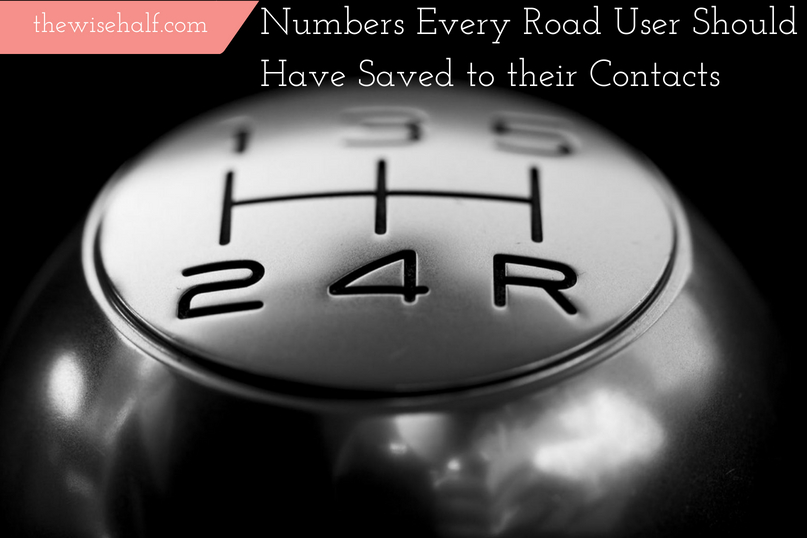When you first pass your test, you tend to be much more organized. And, on top of driving-related information than those of us who have been behind the wheel for a longer period of time. Why? Well, new drivers are entering unfamiliar territory. They are more wary of the dangers that face them each time they take to the open road. And want to be prepared for all potential incidents that could occur.
As you grow more comfortable with your driving abilities. And you realize that there isn’t necessarily an accident waiting around every single corner, you let this information slip. While you may be less likely to create problems on the road as you become more comfortable behind the wheel. You do need to remember that sometimes things can potentially happen even if you’re driving perfectly.
You can never judge how others’ will behave on the road. And you never know when you might experience a scuff, minor collision, or even a major accident. Adverse weather and bad road conditions can have profoundly negative effects on your handling of the car.
Not to mention problems with your vehicle itself. You never know when any situation could take a turn for the worse. So, it’s always good to keep your basic contacts up to date and your knowledge of what to do in troublesome situations fresh in your mind. So, for the sake of safety and peace of mind. Here are some contacts that every road user should have to hand at all times.
Your Insurance Provider
As we are all well aware, every vehicle that is active on the road needs insurance. It’s required by law and something that we are reminded of on a regular basis. However, you should really make sure that you have your insurance provider’s details ready at all times. After all, what’s the point in having a policy if you don’t know who to contact. Or how to go about things if something does go wrong while you’re behind the wheel?
If you experience an accident or disagreement on the road, the first thing that you need to do is exchange insurance policy details with the individual you have encountered. Move your vehicle (if possible) to a safe location. Once you are in a safe location and in a calm and stable state, this is when you need to get in touch with your insurance. Generally speaking, the sooner you contact them the better. As your memory of the events will still be relatively fresh in your mind.

A Lawyer
If you have experienced bodily or psychological harm due to an incident on the roads, you may want to get in touch with a reliable lawyer specializing in this area. Why? Well, they will be able to examine the situation at hand, the effects that it has had on you as an individual, and take action where necessary.
After all, beyond the initial injury and trauma that may be incurred from an incident, you may also experience knock-on effects of an incident that may prevent you from returning to work as and when you might wish to. This would have a profoundly negative impact on your life in general.
So, it’s important to take action as soon as possible in order to see fast and effective results. Remember that there are different types of lawyer out there. So you should have contacts who specialize in a range of areas including a dwi lawyer and a personal injury lawyer.
Breakdown Cover
Whether you have a brand new vehicle or a classic car. It’s absolutely essential that you have breakdown cover. You never know when problems may occur and you might find yourself stranded on the side of the road. A good policy will cover all sorts. It will ensure that you receive roadside assistance as quickly as possible, that you are taken to a safe location as soon as help arrives, and that your vehicle is also towed to safety.
Certain policies will cover any immediate work that can be carried out in order to get your vehicle up and running again. Some will even tow your off-the-road car across the country back to your home if you happen to break down somewhere distant and far out. Many people will assume that if they do break down, they can call a friend to help tow them to safety, or simply find a way home and resolve the situation later.
But if you find yourself in a less than desirable situation with nowhere to go and nobody to help, you’ll kick yourself for not taking out a policy. So, make sure that you have your policy provider’s contact details as well as your policy details stored somewhere convenient inside your vehicle. This could be in a notebook stored in your glove compartment, side compartment, or even the storage behind your seat.
Final Thoughts.
These are just a few contacts that every single road user should have saved to their phone. You don’t want to be searching for them in a panic if an incident does occur. In these situations, you will likely be shaken and should be able to contact the necessary people without hassle or delay.
Remember that no matter how experienced you may be behind the wheel, you never know when incidents may arise (through your own fault, others’ fault, or even by complete accident). So never get too comfortable. It’s necessary to be prepared and wary at all times.


